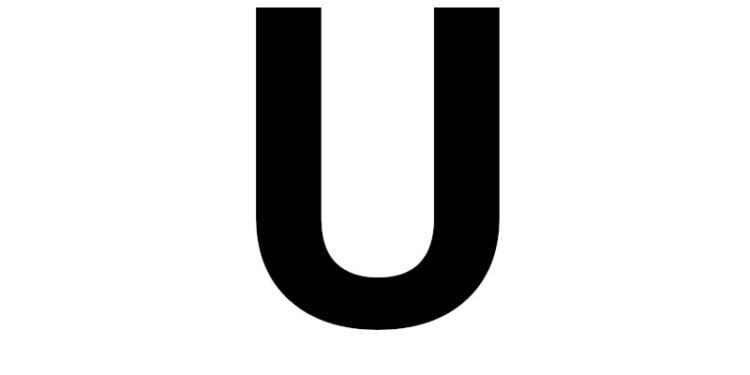This is a hand curated selection of definitions from across academia on the concept of universal basic income.
an unconditional regular payment to all citizens
(Sage, 2019: 17-18)
UBI is a soci(et)al wage for the soci(et)al working class.
(Fuchs, 2019: 262)
UBI is a demand that can advance the networking of the various factions of the social working class.
(Fuchs, 2019: 262)
is an income that:
(Fuchs, 2019: 263)
- Is paid to all members of a society.
- Is unconditional (no needs tested, not based on previous employment, no willingness to work, no prohibition of work).
- Is paid on an individual level.
- Secures existence (it is not set below the subsistence level).
- Includes health insurance.
- Has the effect of the top-down redistribution of wealth from corporations and the rich to the working class and the poor.
is a concept intended to tackle the problem of redistributing wealth within a welfare state setting, providing citizens (or residents) of a nation a regular basic monetary transfer without preconditions on an equal basis
(Obinger, 2014: 141)
an instrument to empower citizens to freely decide whether and how to spend their time on wage labor, and thus as a policy to promote more self-determined lifestyles.
(Obinger, 2014: 143)
a term used to describe a number of different proposals where the state would provide income for all citizens, without any conditions attached, and regardless of their other resources.
(Hobson & Kulakiewicz, 2022: 2)
a scheme where universal, unconditional payments provide people with just enough money to live on.
(Hobson & Kulakiewicz, 2022: 2)
is an ethical, socially just policy instrument that contributes to producing longer term change that enhances the socio-economic and political security for all citizens
(Raventós, 2007)
unconditional income granted to each citizen, irrespective of work criteria or a means test.
(Ruckert et al., 2018: 3)
an unconditional payment granted to every individual as a right of citizenship
(Rodriguez-Montemayor, 2018)
is distinct from conditional cash transfers in aspiring to be unconditional if not truly universal, revolutionary rather than reformist
(Thompson, 2022: 354)
is not simply a neutral policy proposal but a dynamic discourse with performative power to shape the future of work and capitalism
(Thompson, 2022: 368)
a cash transfer given to all members of a community on a recurrent basis regardless of income level and with no strings attached
(Hasdell, 2020: 3)
the idea that every person or citizen, however defined, without means test or work requirement, viz. irrespective of employment status or categorization, earnings, age, gender or other designations, should receive a guaranteed unconditional minimum income from the state, as a monetary payment (i.e., weekly, monthly) with no or limited provisos as to how the amount, or the time of its payees, is spent.
(Sisler, 2014: 152-153)
an income paid by a political community to all its members on an individual basis, without means test or work requirement
(Vab Parijs, 2004)
is a long-standing umbrella concept that is attracting ever more attention in light of the prognostications of a dire future wherein economic inequality is greatly exacerbated by various socioeconomic and technological factors.
(Chohan, 2017)
Other Sources
For a discussion on definitions of universal basic income see Torry (2019).
Has this article helped you in any way? Has it given you information that you found difficult to find? Has it contributed to your research needs? Then please consider giving something back. We rely on contributions from readers such as yourself so if we have helped you in any way, please consider buying us a coffee over at Ko-Fi.
References
Chohan, U. (2017). Universal Basic Income: A Review. Disability Income & Work Injury Compensation eJournal. https://doi.org/10.2139/SSRN.3013634.
Fuchs, C. (2019). Marxism: Karl Marx’s fifteen key concepts for cultural and communication studies. New York: Routledge.
Hasdell, R. (2020). What we know about universal basic income. A cross-synthesis. Standfor Basic Income Lab.
Hobson, F. and Kulakiewicz, A. (2022). Potential merits of a universal basic income. [online] Parliamnet UK. London: House of Commons Library. Available at: https://commonslibrary.parliament.uk/research-briefings/cdp-2022-0104/ [Accessed 12 Nov. 2023].
Obinger, J. (2014). Beyond the paradigm of labor: Everyday activism and unconditional basic income in urban Japan. In Basic Income in Japan: Prospects for a Radical Idea in a Transforming Welfare State (pp. 141-155). New York: Palgrave Macmillan US.
Raventós, D. (2007). Basic Income: The Material Conditions of Freedom. Pluto Press (UK).
Rodriguez-Montemayor, E. (2018). Could a universal basic income become the basis for working better in a fast-changing world. INSEAD, France.
Ruckert, A., Huynh, C., & Labonté, R. (2018). Reducing health inequities: is universal basic income the way forward?. Journal of Public Health, 40(1), 3-7.
Sage, D. (2019). Unemployment, wellbeing and the power of the work ethic: Implications for social policy. Critical Social Policy, 39(2), 205-228.
Sisler, A. (2014). Basic Income, Eco-logical Ethics, and Interdependent Well-Being. Ethics In ProgresS, 5(2), pp.151–169. doi: https://doi.org/10.14746/eip.2014.2.11
Thompson, M. (2022). Money for everything? Universal basic income in a crisis. Economy and Society, 51(3), 353-374.
Torry, M. (2019). The Definition and Characteristics of Basic Income. The Palgrave International Handbook of Basic Income. https://doi.org/10.1007/978-3-030-23614-4_2.
Van Parijs, P. (2004). Basic Income: A Simple and Powerful Idea for the Twenty-First Century. Politics & Society, [online] 32(1), pp.7–39. Doi: https://doi.org/10.1177/0032329203261095.











